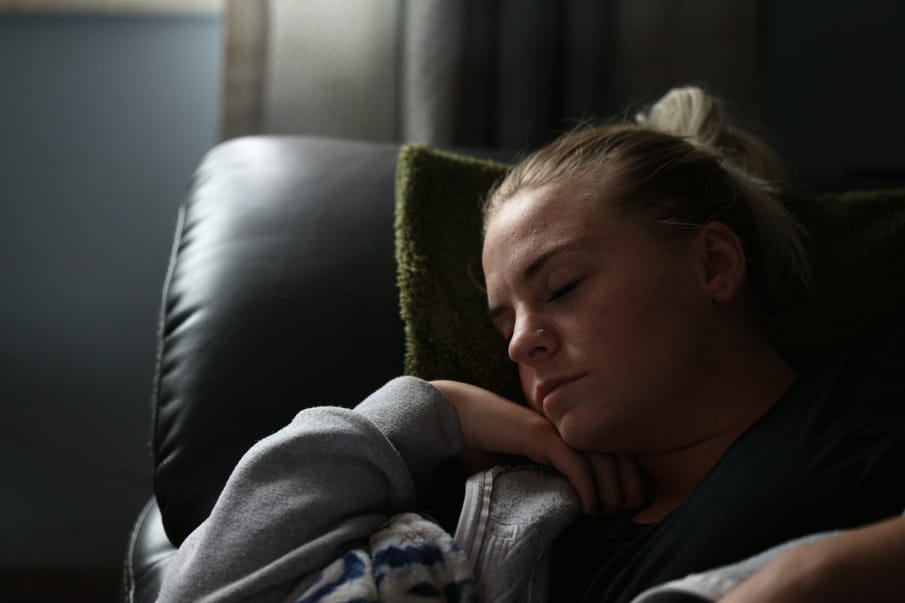Many of us have felt the mid-afternoon slump, the time of day when we can feel our energy levels dropping and our brains becoming foggy. Here, we explore the benefits of micro napping for combatting fatigue and boosting wellbeing
What is micro napping?
Micro naps are small intervals of sleep lasting around five to 10 minutes each. The idea of a micro nap is to stay in the initial stage of sleep, known as N1 sleep when your body is 'dozing off'. During a micro nap, your brain activity changes to a state of reduced wakefulness, this allows for a mini-reset, which experts believe can improve your mental clarity, memory, problem-solving skills, and creativity.
What are the benefits of micro napping?
Increased cognitive flexibility: According to sleep experts, micro napping can help you become more insightful and creative as it puts you in a middle state known as hypnagogia, a grey area of awareness between consciousness and sleep. During hypnagogia, you can experience rich visions and thoughts that are generally found in deep sleep, however, you are still conscious enough to process and remember the experiences.
Enhanced focus and productivity: Many of us have experienced the mid-afternoon slump; micro naps are the go-to option if you need a fast pick-me-up during a busy day without the risk of post-nap grogginess and disorientation. So, the next time you need a brain refresh, consider taking a micro nap to combat exhaustion and increase productivity.
Improved mood: The more tired we are, the harder it can be to regulate and control our emotions. Mirco naps can provide a boost of energy helping to reduce feelings of frustration, irritability and impulsiveness. In fact, one study published in the journal Personality and Individual Differences found that people were less likely to experience frustration after a short midday nap.
How can we incorporate micro naps into the day?
Schedule breaks
Treat a micro nap as an essential part of your schedule, just like any other meeting or task so it becomes a regular habit. Taking a short mid-afternoon nap can help to combat the natural dip in alertness and energy levels.
Consider your energy levels
Pay attention to your energy levels, if you start feeling sluggish or notice a decline in your focus and productivity, it might be the right time for a micro nap.
Set the scene
Treat micro naps like mini-meditations, focusing on deep breathing and relaxation. Try to find a quiet spot and if you can't get away from noise, opt for noise-cancelling headphones, earplugs, or sleep music. Make sure to dim the lights or opt for an eye mask, darkness communicates to your brain that it’s time to rest.
In her article ‘Five tips to fall asleep quicker and sleep better’ Counsellor Jodie McCormack suggests using scents to promote better sleep. “Scents such as lavender are well known to be helpful in creating a calming space for improving the quality of sleep.”
Remember to set an alarm
Ensure you set an alarm before your nap so you don’t sleep for more than 20 minutes. It's important to time your nap carefully to avoid disrupting your nighttime sleep schedule. Ideally, a micro nap should be taken earlier in the day and not too close to bedtime to ensure you can still fall asleep at night without disturbing your natural circadian rhythm.
Avoid heavy meals and caffeine
Avoid heavy foods and caffeinated drinks as this can interfere with your ability to fall asleep. Instead, try to take a nap at least an hour after eating and avoid caffeine for a few hours beforehand.
Recognise when you need more sleep
It’s important to recognise when your body needs more than simply a micro nap. If you consistently feel tired, it might be a sign that you're not getting enough quality sleep at night. If you’re experiencing changes in your sleep patterns and it's impacting your health and wellbeing, consider drilling down on your sleep hygiene habits and speak with your GP about how you're feeling.
The effectiveness of a micro nap can differ between individuals; some may gain more from longer naps, while others might feel refreshed after just a brief rest. There's no harm in trying out a micro nap — just as long as you don't hit the snooze button when it's time to wake up.


Comments